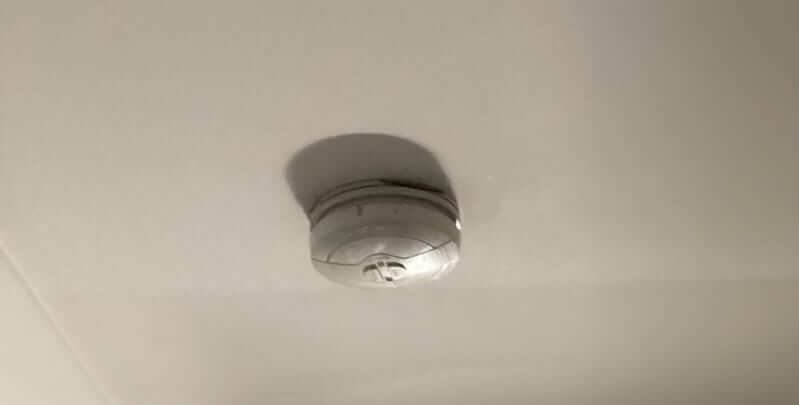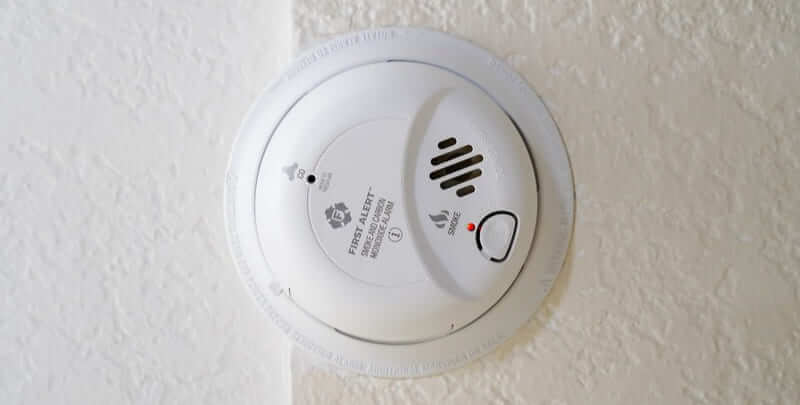How Long Do Smoke Detectors Last?

Smoke detectors are essential safety devices in any home, providing early warning in case of fire. Their role in saving lives and preventing property damage cannot be overstated.
Despite their importance, many homeowners are unaware of how long these devices last and when they need to replace smoke detectors. Understanding the lifespan of a smoke alarm is crucial for ensuring it functions correctly when needed most. This article will aim to answer the question “how long do smoke detectors last?”, highlight the common signs that they need replacing, and explore the importance of regular maintenance to keep your family safe.
Understanding Smoke Detectors
Smoke detectors come in various types, each designed to detect smoke and fire in different ways. The most common types are:
- the ionisation smoke detector
- the photoelectric smoke detector
- dual-sensor detectors
Most smoke detectors can also be connected to other detectors to alert the whole house. These interconnected smoke alarms are much better for fire safety, as they can give you ample warning of danger, even if it is not near you.
The Key Differences Between Ionisation and Photoelectric Detectors
Ionisation smoke detectors are generally most responsive to flaming fires. They contain a small amount of radioactive material between two electrically charged plates, ionising the air and creating a current between the plates. When smoke particles enter the chamber, they disrupt the flow of ions, reducing the current and triggering the alarm.
Photoelectric detectors, on the other hand, are better at sensing smouldering fires. They use a light source aimed at a sensor. When smoke enters the chamber, it scatters the light, causing it to hit the sensor and set off the alarm.
Dual sensor detectors combine both technologies for comprehensive protection. Understanding the different types of smoke alarms and how they work can help homeowners choose the best protection for their needs. Regular maintenance and awareness of their functionality are key to ensuring safety.

Lifespan of Smoke Detectors
The general lifespan of most smoke alarms is typically around ten years. After this period, the sensors can become less effective, and the entire unit should be replaced to ensure optimal performance. It’s important to mark the date of manufacture on the device or in a maintenance log to keep track of its age.
Both battery-operated and hard-wired smoke detectors with lithium battery backup have similar lifespans. However, the batteries installed in these devices need more frequent attention. Batteries should be replaced annually, or sooner if the device emits a low-battery warning chirp.
Hardwired smoke detectors are connected directly to the home’s electrical system and often have battery backups. While the detector itself should be replaced every 10 years, the batteries must be maintained regularly. Regardless of type, always follow the manufacturer’s guidelines for maintenance and replacement to ensure continuous protection.
Signs Your Smoke Detector Needs Replacing
There are several clear signs that indicate your smoke alarm or detector needs replacing:
- Frequent beeping or chirping sounds, which are different from a nuisance alarm and often indicate a low battery or malfunction.
- Replacing the battery doesn’t stop the sound, suggesting it may be time for new smoke alarms.
- Yellowing or discolouration of the device, due to exposure to heat, dust, and other environmental factors, degrading the materials and affecting the detector’s performance.
- False alarms or non-functioning detectors, where the smoke detector goes off without any smoke present, or fails to activate during testing, indicating that the sensors may be compromised.
Regularly testing your smoke detectors can help identify these issues early. Regular maintenance and timely replacement by a licensed electrician ensure your smoke detectors remain effective and dependable.
Maintenance and Testing Of Smoke Alarms and Detectors
To get the most out of every smoke alarm and every smoke detector in your home, it’s essential to provide them with effective maintenance and conduct regular testing.
Regular Testing
Regular testing of your smoke detectors is essential to ensure they function correctly. It is recommended to test your smoke detectors monthly. To test your alarm, press and hold the test button on the detector until you hear a loud siren. This confirms that the alarm and battery are working properly.
In addition to the monthly tests, it’s also wise to conduct more thorough checks periodically. This includes using smoke test spray to simulate smoke and ensure the sensors are responsive. Regular testing helps identify issues early, ensuring your smoke detectors provide reliable protection at all times.

Battery Replacement
Replacing the batteries in your smoke detector is crucial for maintaining their effectiveness. It is recommended to replace the batteries at least once a year, or sooner if the detector emits a low-battery warning chirp. Always use the type of battery specified by the manufacturer to ensure proper function.
When replacing the battery, first remove the detector from its mounting bracket and open the battery compartment. Remove the old battery and install the new one, making sure the positive and negative terminals match the markings. Reattach the detector to the bracket and test it to ensure the new battery is working correctly.
Smoke Detector Cleaning
Regular cleaning of your smoke detectors is important to prevent dust and debris from interfering with their sensors. It is recommended to clean your smoke detectors at least twice a year. Use a vacuum cleaner with a soft brush attachment to gently remove dust from the outside and inside of the detector.
Additionally, you can use a damp cloth to wipe the exterior of the detector, ensuring it remains free of dirt and grime. Avoid using any cleaning agents or sprays directly on the detector, as these can damage the sensors. Regular cleaning helps maintain the detector’s sensitivity and ensures reliable performance.
Protect Your Home and Family With A Working Smoke Alarm
When answering that all-important question “How long do smoke detectors last?”, regular maintenance and timely replacement are essential for home safety. Understanding their lifespan, signs of wear, and proper upkeep can prevent potential hazards and ensure your detectors function when needed most.
By following guidelines for testing, battery replacement, and cleaning, you can extend the life and reliability of your smoke detectors. Remember, these devices are a critical part of your home’s safety system, and keeping them in good working order protects both lives and property. Make it a habit to check your working smoke detectors regularly and see if they need to be replaced.
Please note: Thanks for reading our blog “How Long Do Smoke Detectors Last?”. This information is provided for advice purposes only. Regulations differ from state to state, so please consult your local authorities or an industry professional before proceeding with any work. See After Hours Electrical’s Terms & Conditions here.